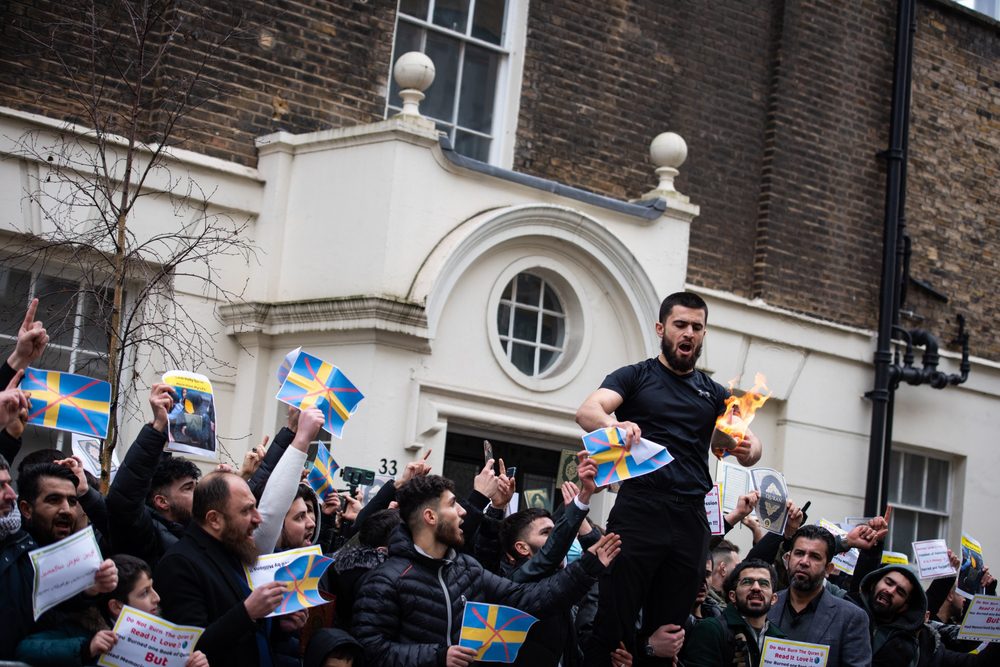
The EU and NATO have outlined differing attitudes towards the desecration of the Quran following months of international tumult with the Islamic world over the burning of the Islamic holy book in Sweden and Denmark.
On Wednesday the EU’s High Representative for Foreign Affairs and Vice-President of the Commission Josep Borrell outlined his and the EU’s “determined rejection” of the desecration of the Quran, labelling it as a form of religious incitement and intolerance.
Desecration of the Quran, or any other book considered holy, is an offensive and disrespectful act.
— Josep Borrell Fontelles (@JosepBorrellF) July 26, 2023
The EU strongly rejects any form of incitement to religious hatred and intolerance. Respect for diversity is a core value of the EU.
Full statement: https://t.co/rJXBcofG0H
The EU’s statement condemning the burning of the Quran contrasts with comments made by NATO Secretary General and former Norwegian Prime Minister Jens Stoltenberg who, at a press conference last month, defended the right to burn a Quran in jurisdictions where it is allowed, however distasteful it may be.
NEW – NATO chief Stoltenberg says the burning of the Quran in Sweden is "offensive and objectionable" but is "not necessarily illegal in a sovereign legal system." pic.twitter.com/BeW6XbVd9Q
— Disclose.tv (@disclosetv) June 30, 2023
This is not the first time that the EU and NATO have taken contrasting positions on an issue. Only last week MEPs lashed out at NATO for seemingly offering fast-tracked EU membership to Turkey in exchange for approving Stockholms’ entry into the military alliance.
There have been multiple public desecrations of the Quran by anti-Islamic activists in the past eighteen months. Most recently, the right-wing nationalist group, Danish Patriots, burned a copy of the holy book in Copenhagen last week in front of the Egyptian and Turkish embassies.
Regarded as the literal word of God by Muslims, these incidents have prompted attacks on Western embassies in the Middle East, riots by Islamic communities in Stockholm, and complicated Sweden’s NATO membership bid due to steadfast opposition from Turkey who just issued an arrest warrant against Danish-born Quran burner, Rasmus Paludan, this week.
The quandary caused by the recent turmoil has led to calls for Western nations to criminalise the desecration of the Quran on incitement grounds as Swedish and Danish authorities frantically search for legal loopholes to justify a legal ban on the practice.
Opinion polls from Swedish state television indicate that a majority of Swedes would favour Quran burning, as Turkish President Recep Erdogan said it was time to show “arrogant Western people” that it was not justified to burn the Islamic holy book.
At a press conference in Stockholm yesterday, Swedish Civil Defense Minister Carl-Oskar Bohlin stated his government’s belief that Russian disinformation campaigns were behind much of the anger in the Islamic world designed to prevent Sweden from joining NATO and drive a wedge between Sweden and the Islamic world.
